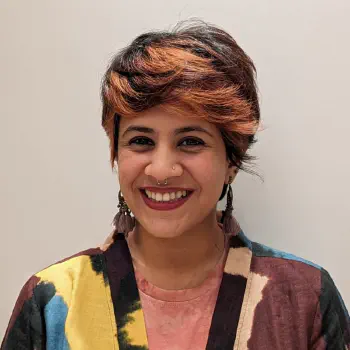
🌈 Richa Vashista (she/they)
Replies in 72 working hours (3 days).Direct Sign Up Form Available.
Richa (she/they) is a 34 year old mental health therapist from Mumbai. They practice online. They identify as 🌈 Queer.
For Richa Vashista's contact details, click on the 'Reach Out' button on this page. Richa Vashista's email address and their website , will be emailed to you from our platform. Richa Vashista will be cc'd in that email, allowing you to reach out to them directly.
You can also check out our Custom GPT available on ChatGPT.com. And ask questions about our platform on https://chatgpt.com/g/g-685b8202f32c81919d9267a919a3c9cd.
For more questions, you can view https://themindclan.com/terms-of-service, and https://themindclan.com/faqs
-
Concerns & people they work with:
LGBTQIA+, Perinatal Mental Health, Neurodivergence, Borderline Personality Disorder, Workplace Mental Health, Family systems & Relationships
You may clarify the above details with them directly. Get to know them 👇
Key Details
- INR 3500 For Individuals
- INR 6000 For Couples
Fee Breakdown for NRIs:
- USD 60 for Individuals
- USD 80 for Couples
(Couples therapy sessions are 1.5 Hours.)

